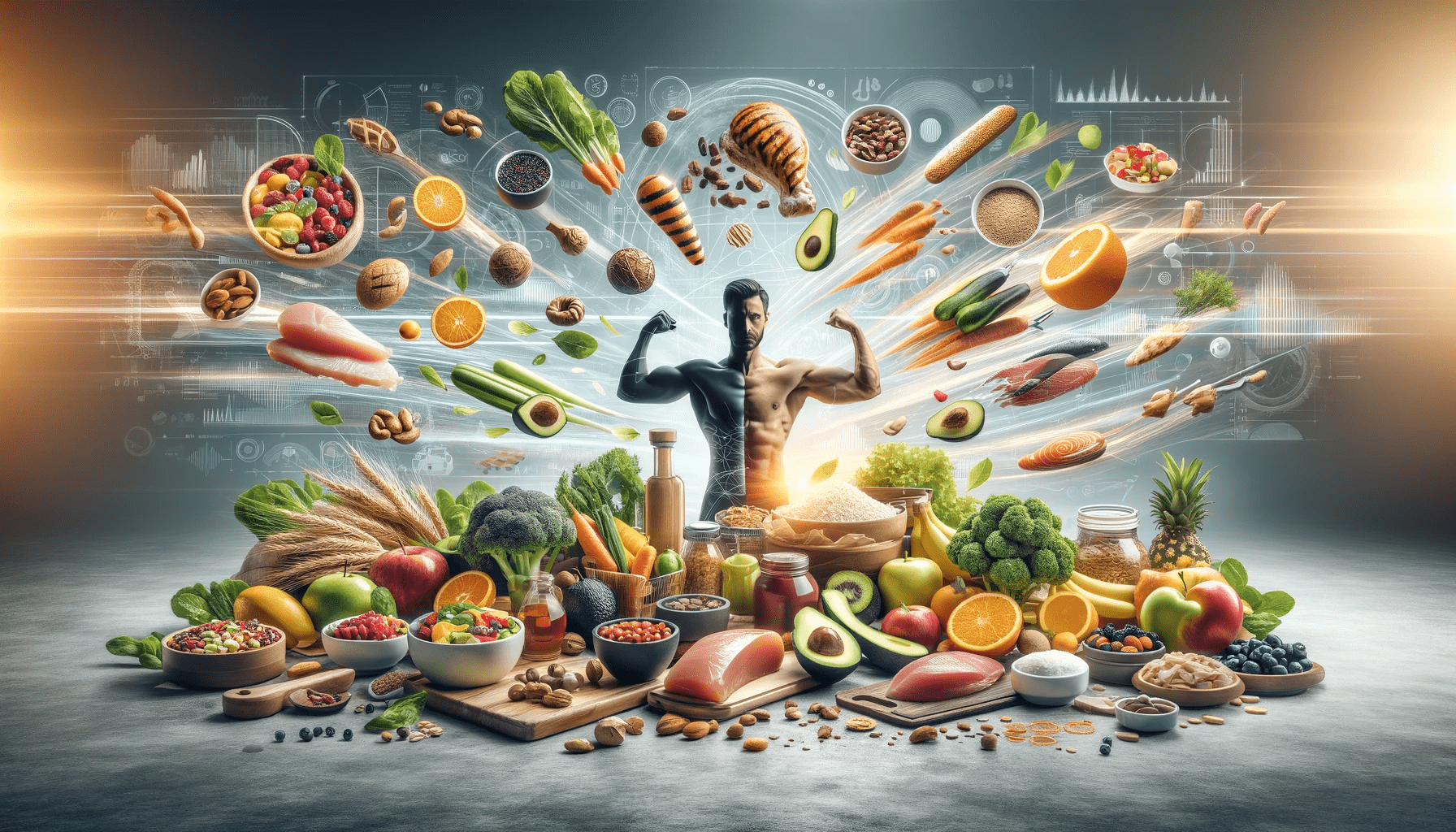Optimal nutrition is a cornerstone of fitness, whether you're a professional athlete or a fitness enthusiast. The right foods can enhance energy levels, improve workout performance, and accelerate recovery. This article explores the key foods integral to fitness nutrition, drawing on scientific research to help you make the most of your training.
1. The Role of Macronutrients in Fitness Nutrition
The three macronutrients - carbohydrates, proteins, and fats - play distinct roles in fitness nutrition.
- Carbohydrates for Energy: Carbohydrates are the primary energy source for high-intensity workouts. A study in the "Journal of the International Society of Sports Nutrition" recommends consuming complex carbohydrates, such as whole grains, for sustained energy【1】.
- Proteins for Muscle Repair and Growth: Protein is crucial for muscle repair and growth. Research in "Nutrients" shows that protein intake post-exercise aids in muscle recovery and growth【2】.
- Fats for Endurance: Healthy fats, especially omega-3 fatty acids found in fish, nuts, and seeds, are important for long-term energy, particularly in endurance sports, as per a study in "Sports Medicine"【3】.
2. Hydration and Electrolyte Balance
Hydration is critical for fitness performance, and maintaining electrolyte balance is essential, especially during prolonged exercise.
- Water and Sports Drinks: Adequate fluid intake, including water and sports drinks with electrolytes, is essential for maintaining hydration, as indicated in research published in the "American College of Sports Medicine"【4】.
3. Timing of Meals and Snacks
The timing of meals and snacks can significantly impact workout effectiveness and recovery.
- Pre-Workout Nutrition: Consuming a balanced meal or snack rich in carbohydrates and protein before exercising can enhance performance, according to "Journal of the International Society of Sports Nutrition"【5】.
- Post-Workout Nutrition: Eating within 45 minutes to an hour post-exercise aids in muscle recovery and replenishing glycogen stores, as noted in "Nutrients"【6】.
4. Foods Rich in Antioxidants
Antioxidants play a crucial role in reducing exercise-induced oxidative stress.
- Berries, Nuts, and Green Vegetables: Foods high in antioxidants, such as berries, nuts, and green vegetables, help combat oxidative stress, as detailed in "The Journal of Nutritional Biochemistry"【7】.
5. The Importance of Micronutrients
Micronutrients, including vitamins and minerals, support various aspects of fitness, from energy metabolism to muscle function.
- Iron and Magnesium: Iron and magnesium, found in leafy greens and legumes, are vital for muscle function and energy production, as per "Journal of International Society of Sports Nutrition"【8】.
6. Nutrient-Dense Whole Foods Over Supplements
While supplements can play a role in fitness nutrition, whole foods should be the primary source of nutrients.
- Whole Foods for Comprehensive Nutrition: Whole foods provide a wide range of nutrients and phytochemicals that work synergistically, offering benefits that supplements alone may not provide.
7. Special Considerations for Different Types of Training
Different training goals and types of exercise require specific nutritional strategies.
- Strength vs. Endurance Training: Nutrition for strength training focuses more on protein and healthy fats, while endurance training requires a higher intake of carbohydrates, as highlighted in "Sports Medicine"【9】.
Conclusion
Integrating key foods into your fitness nutrition regimen can significantly enhance your training results. A balanced diet rich in carbohydrates, proteins, healthy fats, antioxidants, and micronutrients, combined with proper hydration, is essential for optimal performance and recovery.
References
- Kerksick C., Harvey T., Stout J., et al. (2008). "International Society of Sports Nutrition position stand: nutrient timing." Journal of the International Society of Sports Nutrition.
- Pasiakos S.M., McLellan T.M., Lieberman H.R. (2015). "The effects of protein supplements on muscle mass, strength, and aerobic and anaerobic power in healthy adults: a systematic review." Nutrients.
- Simopoulos A.P. (2008). "The importance of the omega-6/omega-3 fatty acid ratio in cardiovascular disease and other chronic diseases." Sports Medicine.
- Sawka M.N., Burke L.M., Eichner E.R., et al. (2007). "American College of Sports Medicine position stand. Exercise and fluid replacement." Medicine & Science in Sports & Exercise.
- Jeukendrup A.E., Killer S.C. (2010). "The myths surrounding pre-exercise carbohydrate feeding." Annals of Nutrition & Metabolism.
- Aragon A.A., Schoenfeld B.J. (2013). "Nutrient timing revisited: is there a post-exercise anabolic window?" Journal of the International Society of Sports Nutrition.
- McAnulty L.S., Nieman D.C., Dumke C.L., et al. (2011). "Effect of blueberry ingestion on natural killer cell counts, oxidative stress, and inflammation prior to and after 2.5 h of running." Applied Physiology, Nutrition, and Metabolism.
- Lukaski H.C. (2004). "Vitamin and mineral status: effects on physical performance." Nutrition.
- Tipton K.D., Wolfe R.R. (2004). "Protein and amino acids for athletes." Journal of Sports Sciences.
Discover fitness supplements on the Amazon store : link

Leave a comment